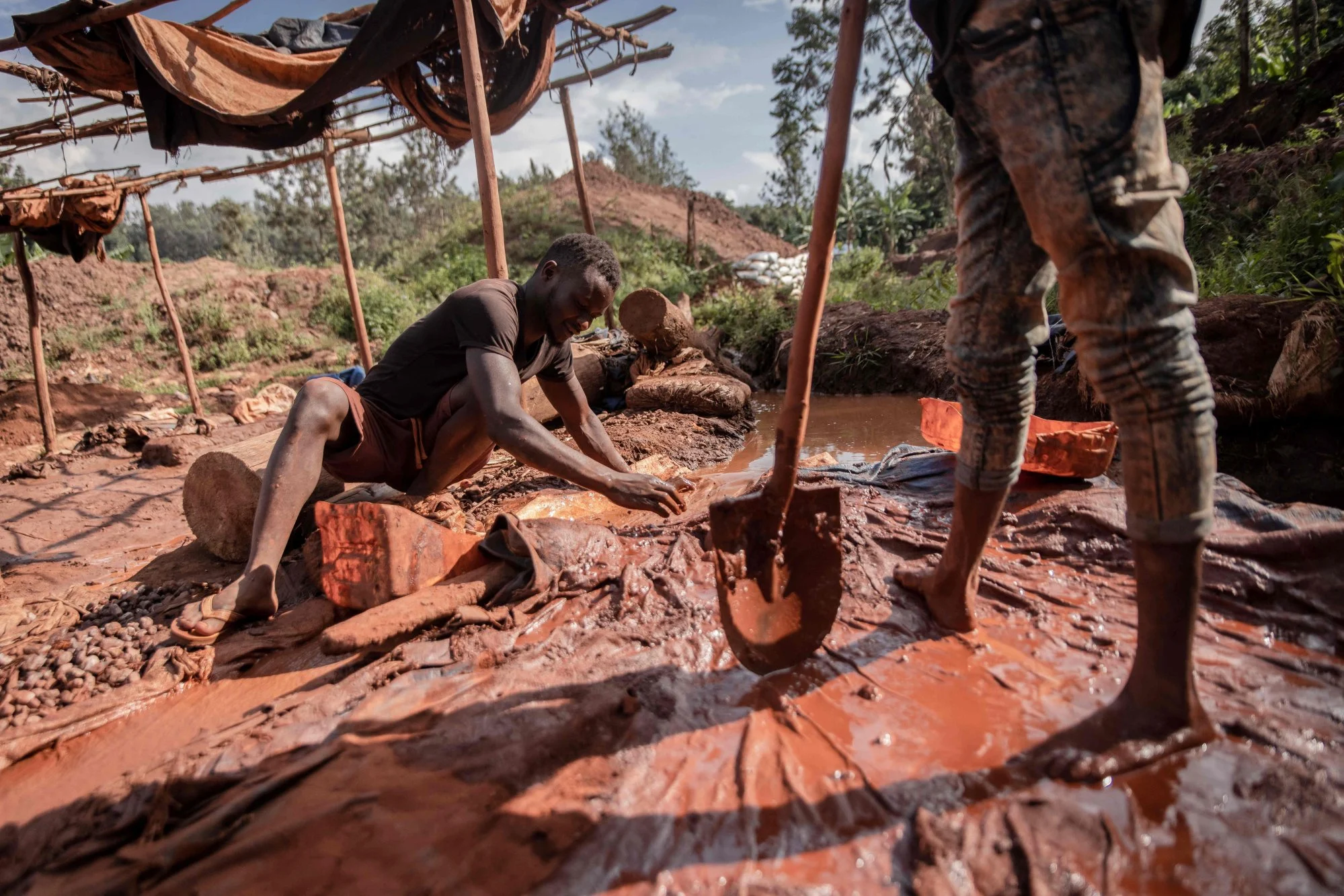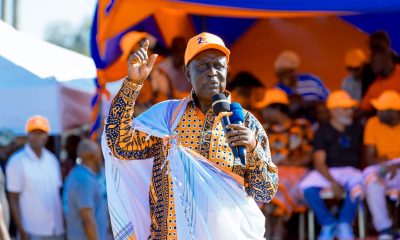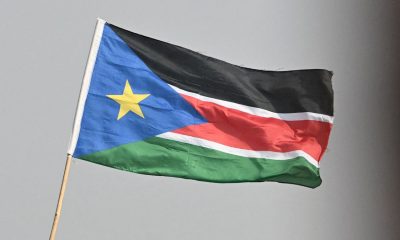Business
EXPOSED: Little Known Shanta Gold Banks On State House Contacts To Bag Mining Contract in Western Kenya
What makes this deal particularly galling is the paltry returns Kenya will receive from its gold.

In what is shaping up to be one of the most controversial mining deals in Kenya’s history, a little-known Indian-owned mining outfit has positioned itself to extract nearly half a trillion shillings worth of gold from Western Kenya, allegedly leveraging powerful State House connections to fast-track environmental approvals and sideline thousands of artisanal miners who have worked these goldfields for generations.
Shanta Gold, which was acquired in May 2024 by the Mauritian conglomerate ETC Holdings controlled by the Indian Patel family, is now on the cusp of obtaining mining permits for the Isulu-Bushiangala and Ramula-Mwibona sites in Western Kenya , where gold deposits are estimated at a staggering $5.28 billion or Sh683 billion .
Behind closed doors at State House, powerful forces appear to be at work.
Sources within government circles have revealed that Felix Koskei, the influential Head of Public Service and Chief of Staff to President William Ruto, has been actively lobbying the National Environment Management Authority to expedite Shanta Gold’s environmental permit applications.
Koskei, who has been described as “Mr. Fix It” within Ruto’s administration and wields enormous power in coordinating government operations , appears to be throwing his considerable weight behind the foreign mining company.
The timing raises eyebrows.
After submitting its Environmental Impact Assessment to NEMA in October , Shanta Gold is already preparing to obtain a mining license starting January 2026 to operate for eight years.
The speed at which this process is moving, particularly for a project that will displace 800 families and threatens the livelihoods of nearly 10,000 artisanal miners, has sparked accusations of a cozy arrangement between foreign investors and Kenya’s political elite.
Once the environmental clearance is rubber-stamped, Mines Cabinet Secretary Ali Hassan Joho will issue the definitive eight-year license for Shanta Gold to operate the two mining sites.
Joho, the flamboyant former Mombasa Governor who took office in August 2024, has remained conspicuously silent as communities in his ministry’s jurisdiction cry foul over lack of consultation.
The plot thickens when you examine who really owns Shanta Gold.
The company is controlled by the three Patel brothers, Ketan, Birju and Mahesh, Indian investors with extensive business interests across Africa in agribusiness, hospitality, and real estate through their ETC Group empire.
Notably, Ketan Patel was already serving on Shanta Gold’s board before the acquisition, raising questions about conflicts of interest.
The acquisition itself was a sweetheart deal.
The takeover, valued at approximately £142 million, received rapid approval from Kenyan authorities in April 2024, with the Cabinet Secretary for Mining giving the green light with remarkable speed.
On the ground in Kakamega’s Isulu-Bushiangala area, the mood is explosive.
More than 10,000 households have vowed not to move out for the multi-billion shilling mining operation, accusing NEMA of secretly colluding with Shanta Gold to forcefully evict them without proper public participation.
Residents carrying twigs in protest have accused the company of planning a land grab under the guise of development.
Deputy Governor Ayub Savula has publicly declared that Kakamega County will not allow NEMA to issue a license to Shanta Gold, questioning where the 800 affected families are expected to relocate.
He claims the county has its own Sh1.2 billion gold mining factory under construction to benefit local miners.
The situation is far from creating unanimity in a county where artisanal gold mining has sustained thousands of families for generations, with women and youth earning as little as Sh500 per day from the dangerous work.
Violence has already erupted, with at least one person killed and several injured in clashes between artisanal miners and Shanta Gold since June, with mining equipment being vandalized and guards attacked .
Local miners are not buying the promises.
“We do not have trust in the investor because Shanta Gold has been exploiting us over the years,” said Nicholas Gambo, a resident who accused the company of mining under the pretext of exploration.
Another miner, Lucy Mugala, who has educated her children through gold mining, accused NEMA of colluding with Shanta Gold to forcefully move residents out .
What makes this deal particularly galling is the paltry returns Kenya will receive from its gold.
While Shanta Gold stands to extract Sh683 billion worth of the precious metal over eight years, the Kenyan government will receive between Sh555 million and Sh607 million in annual royalties, plus Sh193.7 million for the Mineral Development Levy.
Kakamega County gets a measly 20 percent of those royalties, amounting to about Sh11 million annually, a pittance compared to the treasure being extracted from beneath their feet.
The real question that needs answering is why Head of Public Service Felix Koskei is personally intervening to facilitate permits for a foreign-owned mining company in a deal that has sparked violent protests and widespread opposition from local communities.
Why is Ali Hassan Joho’s Mining Ministry moving with such speed to license an operation that threatens to displace nearly a thousand families and destroy the livelihoods of 10,000 artisanal miners?
The Isulu-Bushiangala indigenous village has been home to hundreds of people for close to 200 years, with the Baashimuli, Baamusali and Bushiangala sub-clans peacefully coexisting.
Now they face eviction so that Indian billionaires, with apparent State House backing, can extract billions in gold and leave behind environmental devastation.
NEMA even cancelled a scheduled public participation hearing on the project in November 2025
, fueling suspicions that the environmental regulator is more interested in pleasing powerful interests than protecting communities and ensuring due process.
As Kenya Insights has consistently exposed, major resource extraction deals in this country rarely benefit ordinary Kenyans.
The pattern is depressingly familiar: foreign companies with connections to the political elite secure sweetheart deals, communities are displaced, the environment is destroyed, and a handful of politicians and fixers walk away with briefcases full of cash while counties receive tokens.
The involvement of Felix Koskei, a man who was previously forced out as Agriculture Cabinet Secretary in 2015 over corruption allegations involving sugar import permits, only deepens suspicions about this deal. That he has returned to the center of power as arguably the second most powerful person in government, now using his position to facilitate mining permits for foreign companies, should alarm every Kenyan who cares about transparency and good governance.
President Ruto’s administration has repeatedly promised to fight corruption and ensure Kenyans benefit from their natural resources.
The Shanta Gold deal in Western Kenya will be the ultimate test of that promise.
Will the 10,000 artisanal miners and 800 families facing displacement get justice, or will State House connections once again trump the rights of ordinary citizens?
The clock is ticking toward January 2026, when Shanta Gold expects to begin full mining operations.
Unless there is urgent intervention, Western Kenya’s gold will flow into foreign accounts while local communities are left with nothing but dust and broken promises.
The question Kenyans must ask is simple: Whose interests is Felix Koskei and others really serving, the Kenyan people or the Indian Patel family’s mining empire?
Kenya Insights allows guest blogging, if you want to be published on Kenya’s most authoritative and accurate blog, have an expose, news TIPS, story angles, human interest stories, drop us an email on [email protected] or via Telegram
-

 News2 weeks ago
News2 weeks agoUK-Based Website Faces Scrutiny Over Alleged Sexual Exploitation Of Kenyan Women
-

 Investigations2 weeks ago
Investigations2 weeks agoMistreatment and Gross Misconduct: Thika Cloth Mills Accused of Bribing Labour Ministry Officials to Muzzle Workers’ Revolt
-

 Politics1 week ago
Politics1 week agoODM Shuts Door on Gachagua Alliance, Signals Long-Term Deal with Ruto Ahead of 2027
-

 Politics2 weeks ago
Politics2 weeks agoUhuru Kenyatta Draws Battle Lines in Mt. Kenya Politics Defends Gachagua and Warns Jubilee Rebels to Toe the Line
-

 News1 week ago
News1 week agoBusinessman Adan Haji Isaack on Spot for Allegedly Harassing City Professor Over Disputed Land
-

 News2 weeks ago
News2 weeks agoKenyan Activists Bob Njagi and Nicholas Oyoo Released After 38 Days in Ugandan Custody
-

 Investigations1 week ago
Investigations1 week agoPeter Agoro Legal Battles Reveal How EACC Framed a Whistleblower to Protect Corrupt Elites
-

 Investigations1 week ago
Investigations1 week agoEXCLUSIVE: The $1.7 Billion Oil Heist That’s Starving South Sudan While Elites Feast on Blood Money






















